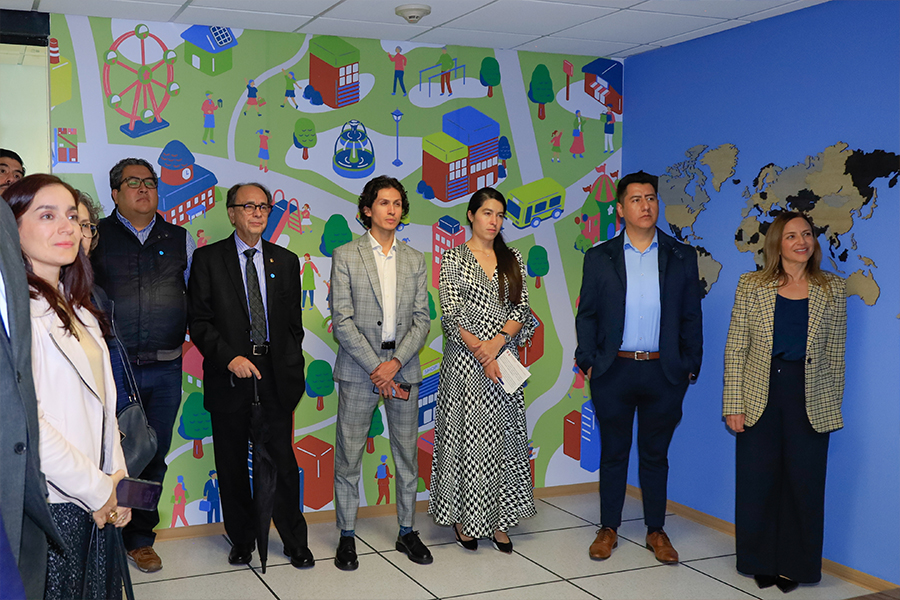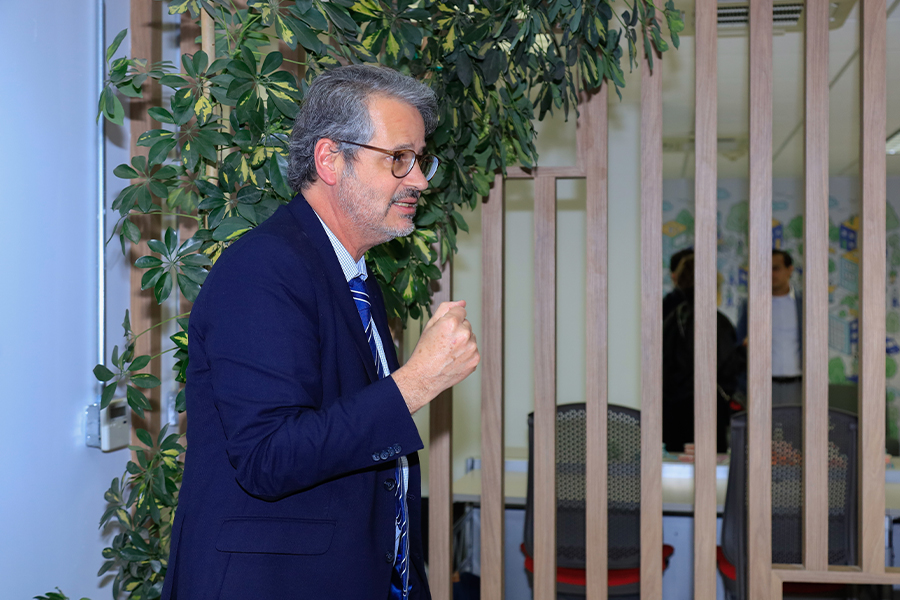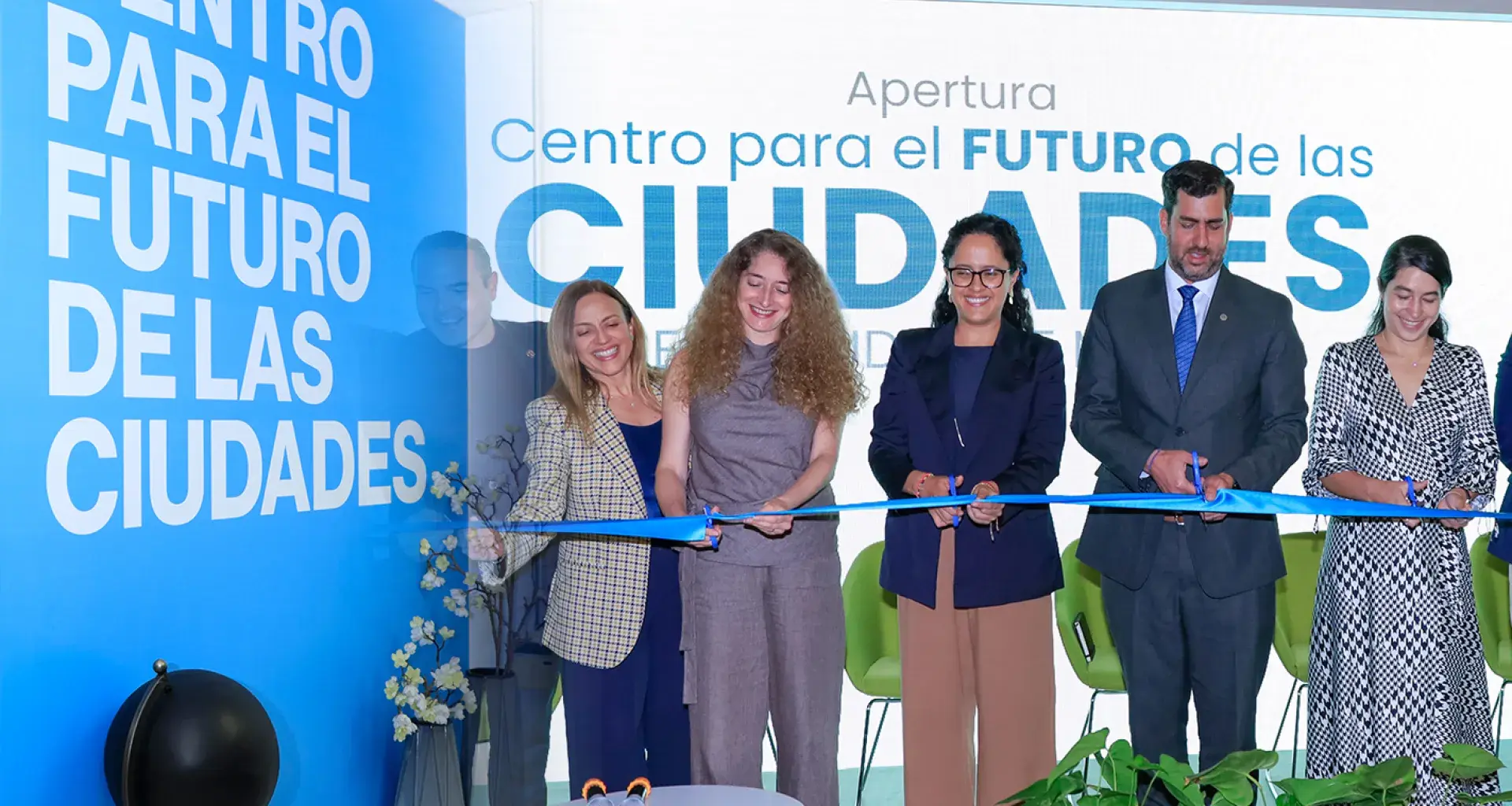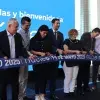On May 26, Tec de Monterrey’s Mexico City campus became the second site for the Center for the Future of Cities (CFC), an applied research center dedicated to transforming the urban model.
The CFC was created to rethink the urban model in Mexico and generate solutions that improve the quality of life in our cities.
“Today, we’re taking an important step forward. The CFC marks the beginning of more humane, prosperous, and sustainable cities,” said Paulina Campos, Vice President of the Mexico City campus, during the opening ceremony at the CEDETEC building.
According to the CFC, this site in the capital represents a key step in consolidating its work as an academic, scientific, and multisectoral space, especially in a context where most of the Mexican population lives in urban areas.

“More than 80% of Mexicans already live in cities. Latin America is one of the most urbanized regions in the world, and we must ask ourselves whether we are designing and managing our cities well.
Do they offer everyone a fair platform for development? Or just some? We need to identify the areas that require change. The Center is actually here to contribute to that debate with data, dialogue, and solutions,” said José Antonio Torre, Director of the Center for the Future of Cities.
Rethinking the urban model for Mexico City
One of the main focuses of the CFC in Mexico City will be territorial justice, a goal motivated by unequal urban dynamics.
“The CFC’s goal in Mexico City is twofold: on the one hand, we want to contribute our skills, knowledge, and experience in analyzing urban phenomena; and on the other, we want to learn from a complex and vibrant city with a unique scale and dynamism.
“We come in a spirit of collaboration, to join forces with universities, governments, civil society, businesses, and above all, communities. We believe in creating solutions based on diverse opinions and experiences,” added Torre.
“The goal in Mexico City is twofold: we want to contribute our skills and learn from a complex city.” - José Antonio Torre
In addition to generating an impact in the capital, the CFC will strengthen the connection with the Tec’s academic community, especially with students and professors.
“It’s an opportunity for undergraduate or graduate students to get involved in real projects, contribute, and learn about urban issues.
“This also allows us to generate knowledge and build a valuable network that extends from academia to the region,” says Torre.
Connecting Tlalpan District with the CFC
The new center will work closely with the Tlalpan District (DiT), a Mexico City campus initiative that promotes sustainable development projects in the southern part of the city.
This collaboration aims to connect research, community, and innovation in a tangible way.
“The Tlalpan District will be our first project in a specific area within Mexico City. We have already developed analytical capabilities at the Center, and now we will apply them there, working with the government, neighbors, and organizations,” said the CFC director.

The Center for the Future of Cities inauguration was attended by Juan Pablo Murra, Rector of Tecnológico de Monterrey, and Gabriela Osorio, Mayor of Tlalpan.
This event also included a keynote speech by Elsa Arcaute, professor of Complexity Science at the Centre for Advanced Spatial Analysis (CASA) at University College London (UCL) and honorary professor at the University of Hong Kong.
About the Center for the Future of Cities
The Center for the Future of Cities is a think-and-do tank at Tecnológico de Monterrey focused on planning and transforming cities into sustainable, human-centered, and prosperous environments.
The Center is aligned with Tec de Monterrey’s fourth strategic differentiator in its 2030 vision, which aims for the institution to drive the transformation of cities and communities.
DON’T LEAVE WITHOUT READING:





